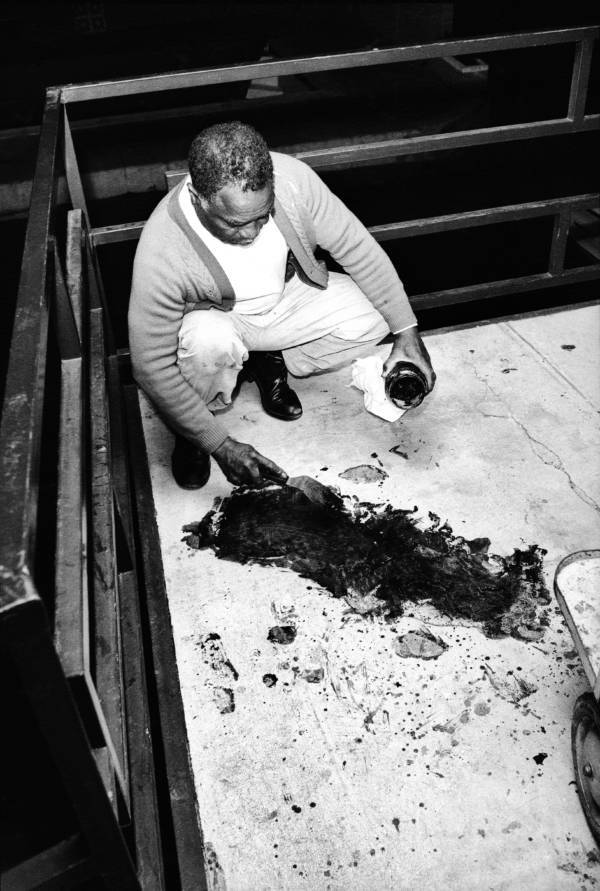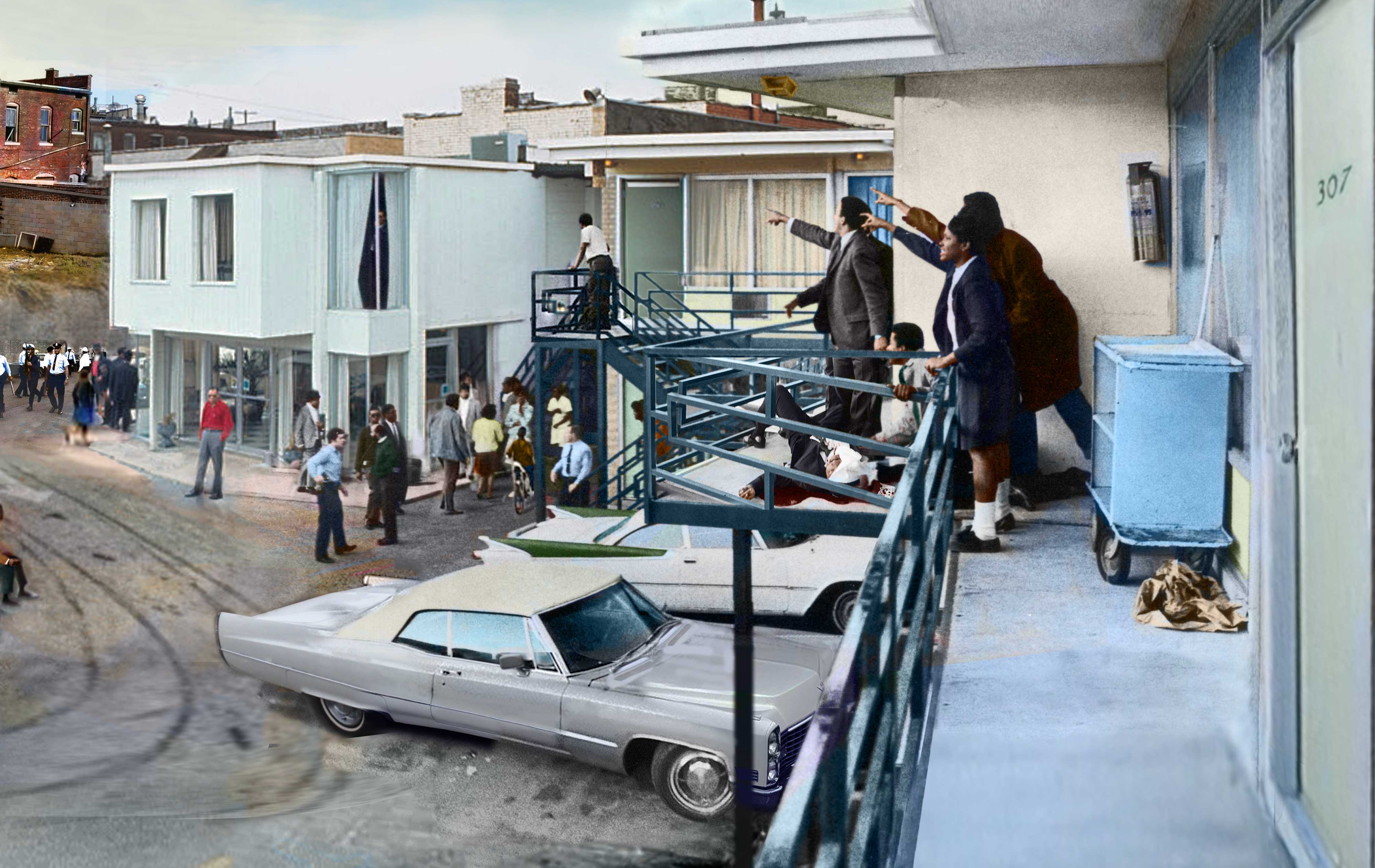Where Did MLK Die? Unveiling The Historic And Tragic Event
It’s a question that resonates deeply in the hearts of many: where did MLK die? The name Martin Luther King Jr. is synonymous with courage, resilience, and a relentless fight for justice. His legacy continues to inspire millions worldwide, but the circumstances surrounding his death remain a poignant chapter in American history. Let’s take a closer look at this pivotal moment that shook the nation to its core.
As we dive into the details, it's essential to understand the significance of MLK's life and work. His commitment to nonviolent protest and civil rights made him a beacon of hope for marginalized communities. But his journey wasn’t without challenges, and ultimately, it led to a tragic end that left an indelible mark on history.
So, where did MLK die, and what led to this fateful event? In this article, we’ll explore the location, the events leading up to his death, and the lasting impact of his legacy. Buckle up, because we’re about to uncover some powerful truths.
Read also:Christopher Joseph Lewis The Untold Story Of A Rising Star
This article is packed with insights, historical context, and personal reflections. Whether you're here to learn more about MLK's life or to honor his memory, you’re in the right place. Let’s get started!
Table of Contents
- Biography of Martin Luther King Jr.
- Where Did MLK Die?
- The Last Days of MLK
- Why Was MLK Targeted?
- Impact of MLK's Death
- Legacy and Remembrance
- Key Events Leading to His Death
- Conspiracy Theories Surrounding MLK's Death
- Lessons Learned from MLK's Legacy
- Final Thoughts
Biography of Martin Luther King Jr.
Martin Luther King Jr. was more than just a civil rights leader; he was a symbol of hope and change. Born on January 15, 1929, in Atlanta, Georgia, MLK grew up in a family deeply rooted in the Baptist church. His father, Martin Luther King Sr., was a pastor, and his mother, Alberta Williams King, instilled in him the values of compassion and justice.
MLK's journey into activism began during his college years. He earned a degree in sociology from Morehouse College and later pursued a doctorate in theology from Boston University. It was during this time that he became heavily influenced by the teachings of Mahatma Gandhi and the philosophy of nonviolence.
By the late 1950s, MLK had emerged as a prominent figure in the civil rights movement. He led numerous protests, marches, and campaigns aimed at ending racial segregation and discrimination. His most famous speech, "I Have a Dream," delivered during the March on Washington in 1963, remains one of the most iconic moments in American history.
Key Facts About MLK
| Full Name | Martin Luther King Jr. |
|---|---|
| Birthdate | January 15, 1929 |
| Place of Birth | Atlanta, Georgia |
| Occupation | Civil Rights Activist, Baptist Minister |
| Spouse | Coretta Scott King |
| Children | Four (Yolanda, Martin III, Dexter, Bernice) |
Where Did MLK Die?
The question “where did MLK die?” takes us to Memphis, Tennessee, a city that became the final chapter in his life. On April 4, 1968, MLK was assassinated while standing on the balcony of the Lorraine Motel. The motel, which has since been transformed into the National Civil Rights Museum, became a symbol of his ultimate sacrifice for the cause of equality.
MLK was in Memphis to support a sanitation workers’ strike. These workers were protesting against poor working conditions and low wages, and MLK saw their struggle as an extension of the broader fight for civil rights. His presence in the city was a testament to his commitment to economic justice, a theme that had become increasingly central to his activism in the later years of his life.
Read also:Alyex Star The Rising Phenomenon In The Digital Era
Why Memphis?
Memphis was a battleground for civil rights in the 1960s. The sanitation workers’ strike, which began in February 1968, highlighted the systemic inequalities faced by African Americans in the workforce. MLK saw this as an opportunity to bring attention to the intersection of racial and economic injustice.
His involvement in the strike was met with resistance from local authorities and opposition groups. Despite the threats and challenges, MLK remained steadfast in his mission to uplift the marginalized and oppressed.
The Last Days of MLK
In the weeks leading up to his death, MLK was under immense pressure. He had been receiving death threats for years, but the intensity of these threats had increased significantly. Despite the danger, he refused to back down from his principles.
On the evening of April 3, 1968, MLK delivered his famous "I've Been to the Mountaintop" speech at the Mason Temple in Memphis. In this speech, he spoke with a sense of foreboding, as if he knew his time was running out. He ended with the words, "I may not get there with you. But I want you to know tonight, that we, as a people, will get to the Promised Land." These words have since become a powerful reminder of his unwavering faith and determination.
What Happened on April 4, 1968?
On the evening of April 4, MLK stepped out onto the balcony of the Lorraine Motel to speak with colleagues below. At 6:01 PM, a single bullet struck him in the neck. The shooter, later identified as James Earl Ray, fled the scene. MLK was rushed to St. Joseph's Hospital, where he was pronounced dead at 7:05 PM.
The assassination sent shockwaves through the nation. Riots erupted in cities across the country, and the world mourned the loss of a visionary leader.
Why Was MLK Targeted?
MLK's assassination was not an isolated event. He had long been a target of government surveillance and harassment due to his activism. The FBI, under the leadership of J. Edgar Hoover, conducted a campaign of intimidation and smear tactics against MLK, labeling him a "threat to national security."
His stance on issues such as economic inequality, opposition to the Vietnam War, and his growing alliance with labor unions made him a powerful enemy of those who sought to maintain the status quo. The forces of racism and oppression viewed him as a threat to their power, and his death was a calculated attempt to silence his voice.
Impact of MLK's Death
The assassination of MLK had profound and far-reaching consequences. It galvanized the civil rights movement, inspiring a new generation of activists to continue the fight for justice. However, it also exposed the deep divisions within American society and the urgent need for systemic change.
One of the most immediate effects was the passage of the Civil Rights Act of 1968, also known as the Fair Housing Act. This landmark legislation prohibited discrimination in housing based on race, color, religion, or national origin. It was a testament to MLK's influence and the power of his vision.
How Did the Nation React?
The reaction to MLK's death was a mix of grief, anger, and defiance. Cities across the country erupted in protest, with some turning violent. However, many chose to honor his memory through peaceful demonstrations and acts of service.
His death also prompted a nationwide conversation about race, inequality, and justice. It forced Americans to confront the uncomfortable truths about their society and the work that still needed to be done.
Legacy and Remembrance
MLK's legacy continues to inspire people around the world. His commitment to nonviolence, justice, and equality has left an indelible mark on history. Today, his birthday is celebrated as a national holiday in the United States, and countless memorials and institutions bear his name.
The National Civil Rights Museum, located at the site of the Lorraine Motel, serves as a powerful reminder of MLK's life and work. It invites visitors to reflect on the struggles of the past and the progress that has been made, while also challenging them to continue the fight for justice in the present.
How Can We Honor MLK's Legacy?
Honoring MLK's legacy means more than just remembering his words and deeds. It means taking action to address the issues he fought for. This includes advocating for racial equality, economic justice, and human rights. It means standing up against discrimination and injustice in all its forms.
As MLK himself said, "Injustice anywhere is a threat to justice everywhere." By embracing this philosophy, we can continue to move toward the "Promised Land" that he envisioned.
Key Events Leading to His Death
MLK's final years were marked by a series of events that shaped his activism and ultimately led to his death. Here are some of the key moments:
- 1965: MLK leads the Selma to Montgomery marches, which played a crucial role in the passage of the Voting Rights Act.
- 1966: He expands his focus to include economic justice, launching the Chicago Freedom Movement.
- 1967: MLK speaks out against the Vietnam War, criticizing the U.S. government's involvement and its impact on marginalized communities.
- 1968: He announces the Poor People's Campaign, a nationwide effort to address poverty and economic inequality.
Conspiracy Theories Surrounding MLK's Death
The assassination of MLK has been the subject of numerous conspiracy theories over the years. While James Earl Ray was officially charged with the crime, many believe that he was part of a larger conspiracy involving government agencies and organized crime.
In 1999, a civil trial found that there was a conspiracy involving the U.S. government and others to assassinate MLK. This verdict, however, has been met with skepticism and debate. The truth behind MLK's death may never be fully known, but the questions surrounding it continue to fuel discussions about transparency and accountability.
Lessons Learned from MLK's Legacy
MLK's life and death offer valuable lessons for us all. His unwavering commitment to justice, even in the face of adversity, reminds us of the power of courage and conviction. He taught us that change is possible, even when the odds seem insurmountable.
Some of the key lessons we can take away from MLK's legacy include:
- The importance of standing up for what is right, even when it’s difficult.
- The value of nonviolence as a tool for social change.
- The need to address systemic inequalities and work toward a more just society.
Final Thoughts
So, where did MLK die? The answer is Memphis, Tennessee, but the question goes deeper than just a location. It’s a reminder of the sacrifices made in the pursuit of justice and the ongoing struggle for equality. MLK's death was a tragedy, but his legacy lives on, inspiring generations to continue the fight for a better world.
We invite you to reflect on his life and work, and to take action in your own way. Whether it’s through activism, education, or service, there are countless ways to honor MLK's memory and contribute to the cause of justice. Share your thoughts in the comments below, and don’t forget to check out our other articles on history and social change.
Article Recommendations


